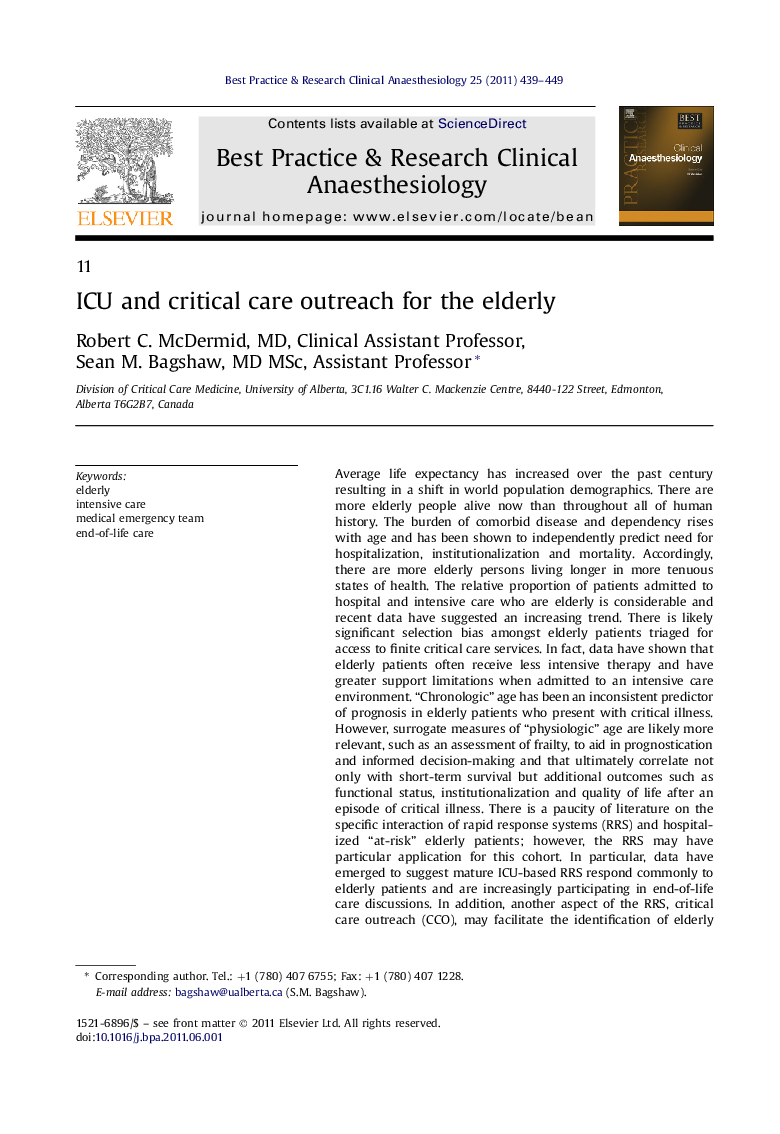| کد مقاله | کد نشریه | سال انتشار | مقاله انگلیسی | نسخه تمام متن |
|---|---|---|---|---|
| 2748653 | 1149204 | 2011 | 11 صفحه PDF | دانلود رایگان |

Average life expectancy has increased over the past century resulting in a shift in world population demographics. There are more elderly people alive now than throughout all of human history. The burden of comorbid disease and dependency rises with age and has been shown to independently predict need for hospitalization, institutionalization and mortality. Accordingly, there are more elderly persons living longer in more tenuous states of health. The relative proportion of patients admitted to hospital and intensive care who are elderly is considerable and recent data have suggested an increasing trend. There is likely significant selection bias amongst elderly patients triaged for access to finite critical care services. In fact, data have shown that elderly patients often receive less intensive therapy and have greater support limitations when admitted to an intensive care environment. “Chronologic” age has been an inconsistent predictor of prognosis in elderly patients who present with critical illness. However, surrogate measures of “physiologic” age are likely more relevant, such as an assessment of frailty, to aid in prognostication and informed decision-making and that ultimately correlate not only with short-term survival but additional outcomes such as functional status, institutionalization and quality of life after an episode of critical illness. There is a paucity of literature on the specific interaction of rapid response systems (RRS) and hospitalized “at-risk” elderly patients; however, the RRS may have particular application for this cohort. In particular, data have emerged to suggest mature ICU-based RRS respond commonly to elderly patients and are increasingly participating in end-of-life care discussions. In addition, another aspect of the RRS, critical care outreach (CCO), may facilitate the identification of elderly patients for timely goal-oriented advanced care planning prior to clinical deterioration.
► Elderly patients are commonly and increasingly admitted to intensive care.
► Elderly ICU patients receive less intensive support compared with younger patients.
► Elderly ICU patients have higher mortality compared with younger patients.
► Outcome for selected elderly patients, with low comorbidity, are generally good.
► MET and Outreach may aid to identify and “rescue” of “at-risk” elderly patients.
Journal: Best Practice & Research Clinical Anaesthesiology - Volume 25, Issue 3, September 2011, Pages 439–449